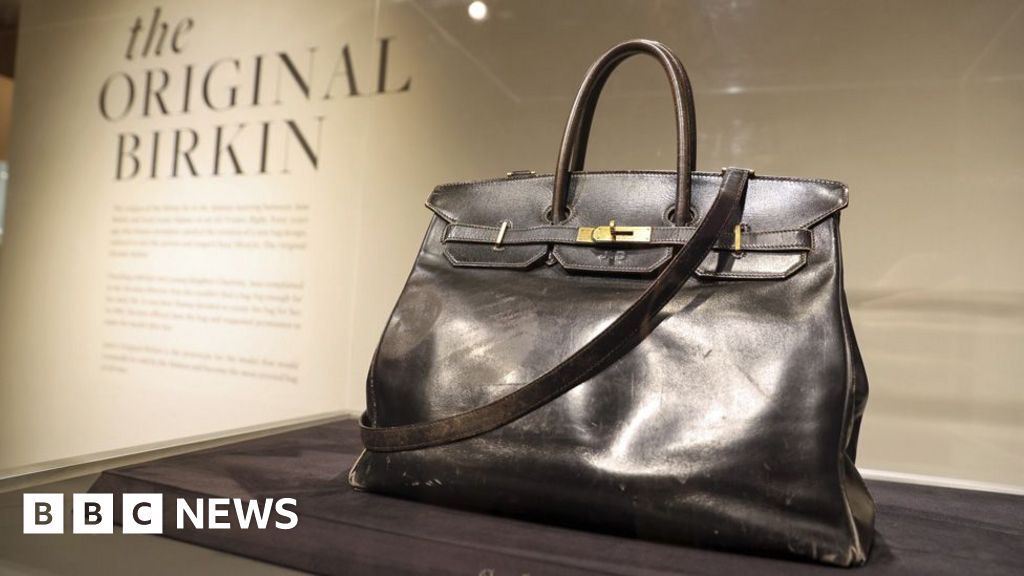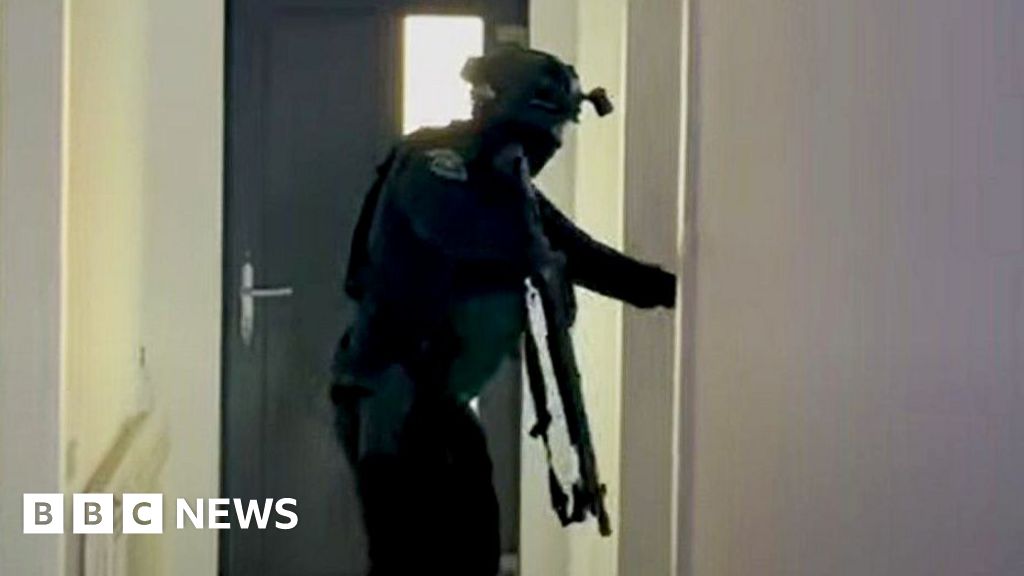Key Takeaways
- Argentine lawyer demands Interpol notice against perpetrators of LIBRA scandal.
- The $4.4 billion LIBRA memecoin collapse has ignited a political storm in Argentina.
- President Javier Milei faces potential investigation and impeachment over his role in promoting the token.
LIBRA, a memecoin initially perceived as an official Argentine cryptocurrency, became one of the most damaging scams in recent history, wiping out $4.4 billion in investor funds.
The scandal has rocked Argentina’s crypto market and political establishment, with President Javier Milei at the center of corruption allegations.
Milei, who built his campaign on eradicating corruption, now faces legal scrutiny and a possible impeachment after promoting LIBRA on social media.
Opposition lawmakers claim his endorsement misled investors, inflating LIBRA’s market cap before insiders cashed out, leaving thousands with heavy losses.
Nearly a month after the scandal, President Milei’s approval rating has hit a new low.
Latest Development
Milei’s Approval Rating Plunges
President Milei’s approval rating has reached its lowest point since taking office, with public trust eroding in the wake of the $4.6 billion LIBRA memecoin collapse.
A recent poll by Zuban Córdoba found that 57.6% of Argentinians disapprove of Milei, while only 36% continue to support him.
The remaining 6.4% remain undecided. The survey, conducted in March, polled 1,600 respondents, reflecting growing skepticism over the president’s handling of the crisis.
Another survey by the University of San Andrés, conducted between March 11 and 20 with 1,020 participants, reported Milei’s approval rating at 45%, further underscoring the decline in public confidence.
However, not all polls paint the same picture. According to Morning Consult’s data from February 27 to March 5, Milei’s approval rating remained relatively high at 62.4% despite the LIBRA scandal.
The disparity in polling figures highlights the uncertainty surrounding Milei’s political standing as Argentina grapples with the fallout from the crypto crisis.
Lawyer Demands Interpol Hunt
Argentine attorney Gregorio Dalbon has formally requested that Interpol issue a red notice for the arrest of Hayden Davis, citing his alleged role in the LIBRA memecoin collapse.
Dalbon accused Davis of being a key figure behind the failed project, which wiped out millions in investor funds. Prosecutors have already frozen nearly $100 million in crypto assets linked to the investigation. Davis’s legal team has not yet responded to the allegations.
The push for an Interpol red notice comes amid unverified reports that Davis may have taken his own life under mounting pressure from law enforcement and political figures.
While LIBRA memecoin collapsed within 24 hours of launch, investigators say those behind the scheme are still laundering funds . Insiders allegedly used low-market-cap memecoins in pump-and-dump schemes to cash out their gains.
Top Prosecutor Launches Investigation Into LIBRA
Federal prosecutor Eduardo Taiano has launched a criminal investigation into LIBRA. The probe centers on allegations of fraud, bribery, and influence peddling.
Authorities are tracing suspicious transactions, identifying beneficiaries, and collecting key digital evidence.
Taiano has specifically ordered a forensic reconstruction of financial activity on Feb. 14 and 15—the peak trading days for LIBRA—when the token saw a dramatic surge in volume.
The investigation aims to map out the full flow of funds linked to LIBRA since its inception, determining who profited from the scheme.
Prosecutors have also requested the recovery of deleted social media posts, including Milei’s now-removed Feb. 14 tweet endorsing the token.
The federal probe follows reports that the U.S. Department of Justice (DOJ) is investigating prominent figures tied to LIBRA.
Top U.S. regulators are also said to be monitoring potential financial misconduct related to the project.
LIBRA Crash Timeline
Milei’s Endorsement and the LIBRA Crash
Amid growing global interest in state-backed memecoins, Milei publicly promoted LIBRA on X, describing it as a private initiative aimed at revitalizing Argentina’s economy.
His now-deleted post—shared with over 3.8 million followers—included a direct link to the project, fueling speculation that LIBRA had official government backing.

Investor enthusiasm drove LIBRA’s market cap past $4.4 billion , but within hours, the token collapsed in what analysts now describe as a coordinated rug pull.
74,000 Traders Lose $286 Million
According to blockchain analytics , 74,000 traders collectively lost $286 million in the LIBRA crash.

At least 24 wallets suffered losses exceeding $1 million, while 61 addresses lost more than $500,000. One investor reportedly spent $5.6 million acquiring 2.1 million LIBRA tokens—only to sell them for just $430,000, marking a $5.17 million loss.
In a bizarre twist, blockchain analysts later discovered that this trader received $5 million in USDC as compensation, fueling speculation that he was an insider who mistimed his entry.
The trader in question? Barstool founder Dave Portnoy. The LIBRA team allegedly covered his losses, raising further concerns about coordinated fraud.
LIBRA Crash Deepens Altcoin Liquidity Crisis
LIBRA’s collapse from its all-time high has sent shockwaves through the broader cryptocurrency market, exacerbating the ongoing liquidity crunch in the altcoin sector.
Memecoins have a history of draining liquidity from altcoins, as each new viral token absorbs capital that might otherwise flow into more established projects.
While fresh capital occasionally enters the market, it is often controlled by insiders who dictate price movements before retail investors join in, shifting existing liquidity rather than expanding the total market.

A similar pattern played out when the TRUMP memecoin skyrocketed to a $75 billion market cap. Despite its meteoric rise, the overall crypto market cap remained unchanged, suggesting that capital was merely shifting between assets rather than growing.
The LIBRA token followed the same trend. As it climbed to $4.4 billion, it failed to bring in fresh liquidity to the market. However, when insiders cashed out in the rug pull, it triggered a liquidity drain, causing ripple effects across the broader altcoin sector.
LIBRA’s Creators and a Web of Insider Trading
As investigators unraveled the LIBRA scandal, they uncovered a disturbing pattern of fraud, insider trading, and ties to serial memecoin scammers.
On-chain analysts traced LIBRA’s token movements back to Arunkumar Sugadevan, an Indian developer linked to multiple fraudulent projects, including MELANIA, ENRON, and OG FUN.
One wallet associated with MELANIA’s creator had previously made $2.4 million by sniping tokens early. A related address connected to LIBRA’s launch later cashed out $87 million before sniping another $6 million in profits from the project.
LIBRA’s downfall mirrored past scams in which insiders collaborated with influencers and celebrities to pump memecoins before abruptly pulling liquidity.
In these schemes, public figures often denied involvement afterward, typically claiming their accounts had been hacked—a tactic infamously used in the Jenner memecoin scandal.

Amid the growing scrutiny, LIBRA’s promoters were identified as Kelsier Ventures and its CEO, Hayden Davis.
In an interview with investigative journalist Coffeezilla, Davis not only admitted to sniping LIBRA tokens but also inadvertently revealed details of similar celebrity-backed scams. He disclosed that President Milei promoted LIBRA not as a memecoin but as an investment scheme.
Davis further exposed a pay-to-promote operation in which several influencers were gifted millions in LIBRA in exchange for bullish posts—with no disclosure to their audiences. Additionally, Davis boasted that he traded on insider information and personally made over $100 million on LIBRA.
Beyond Davis’s admissions, the LIBRA collapse revealed a tangled web of insider trading involving key opinion leaders (KOLs), exchange platforms, and token launch teams.
According to decentralized exchange Jupiter, insiders were aware of LIBRA’s launch nearly a week before it went live. While Jupiter denied direct involvement in insider trading, its partner platform Meteora was at the center of controversy.
Meteora co-founder Ben Chow resigned on Tuesday , Feb. 18, after leaked messages exposed his role in coordinating multiple memecoin launches—including a $200 million extraction scheme.
Argentina’s Political Fallout
LIBRA’s implosion sparked a political crisis for President Milei, turning his once-fiery anti-corruption stance into a liability.
On Sunday, Feb. 16, Argentine attorneys filed criminal fraud charges against the president, accusing him of using his platform to promote a scam.
Legal filings argued that Milei directly influenced LIBRA’s rapid rise and fall, misleading investors into believing the token was a government-backed initiative.
The LIBRA scam has become a national-level debacle, as Argentina’s stock market plunged 6% at Monday’s opening.

Meanwhile, opposition lawmakers are pushing for impeachment proceedings, citing Milei’s involvement as a “national embarrassment” with international implications.
A Reuters report suggested that Congress may soon move forward with a formal impeachment trial.
In response, the Argentine Presidential Office called the Anti-Corruption Office to investigate whether Milei or any government officials engaged in wrongdoing.
The courts will now review evidence to determine whether individuals connected to LIBRA—including those behind the KIP Protocol—committed financial crimes.
With legal and political pressures mounting, Argentina faces uncertainty in its crypto sector and leadership.
CZ Steps In With Aid for Victims
Following the collapse, former Binance CEO Changpeng Zhao (CZ) stepped in, donating 150 BNB (nearly $100,000) to assist some of the scam’s victims.
Zhao noted on X that he was following the lead of a university student who had started an initiative to help those affected.
While the donation was a fraction of the nearly $286 million lost, the gesture drew praise from the crypto community, with many calling on other industry leaders to step up.
Milei Doubles Down, Rugs Community Twice
In the wake of the collapse, Milei deleted his initial promotions of LIBRA—only to reshare them again after the scam had been exposed.
Rather than taking accountability, the president dismissed concerns, claiming he had merely “shared” the project, not promoted it.
“Did the state lose money? No. Did Argentinians lose money? Maybe four or five at most. The vast majority of investors are Chinese and American,” Milei said in an interview, downplaying the scandal.
“Those involved knew the risks very well—they were volatility traders. This is a private matter between individuals, and they participated voluntarily,” he added.
Kelsier Ventures Claims Ties to Argentine President Milei
The LIBRA memecoin scandal continues to unravel, with new allegations linking Argentine President Javier Milei directly to the scheme.
In a message sent to media outlets, Hayden Davis, a key figure behind the fraudulent project, claimed to have financial leverage over Milei through payments to the president’s sister.
“I control that n****,” Davis allegedly wrote. “I send $$ to his sister, and he signs whatever I say and does what I want.”
The claims have fueled speculation, particularly after Milei abruptly ended an interview when pressed about the LIBRA controversy.
Observers now suspect his sister may have played a role in shutting down the discussion.
DOJ Investigates Prominent Figures Linked to LIBRA
The DOJ has reportedly opened an investigation into key figures who may have played a role in the LIBRA token scheme, according to Argentine news outlet La Nación.
Among those reportedly under scrutiny:
- Argentine President Javier Milei.
- Uniswap CEO Hayden Adams.
- KIP Protocol Co-Founder Julian Peh.
While still in its early phases, the DOJ inquiry may soon involve other U.S. regulators.
The FBI is said to be monitoring potential criminal activity related to the project, while the Department of Homeland Security (DHS) is looking into possible money laundering. The Securities and Exchange Commission (SEC) is also assessing whether LIBRA violated securities regulations, adding another layer of scrutiny to the case.
Was this Article helpful?


















